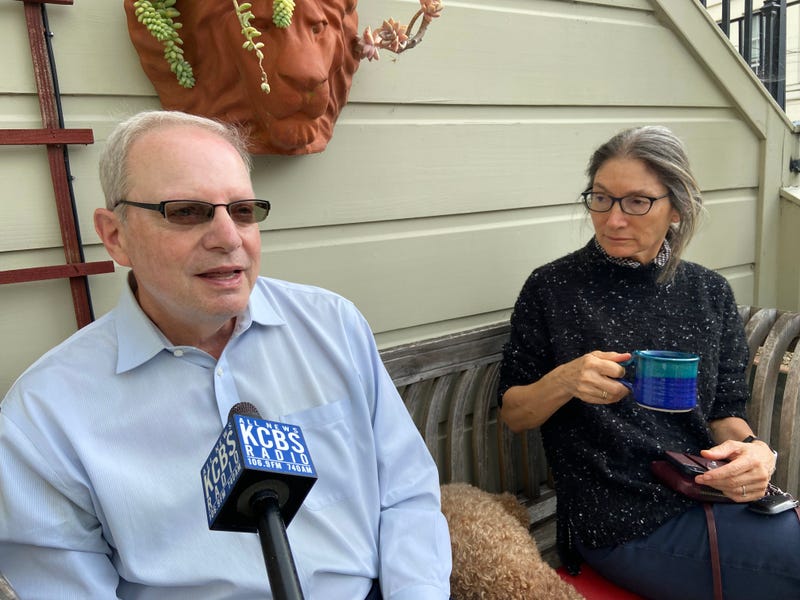
SAN FRANCISCO (KCBS RADIO) – Despite advances in COVID-19 treatment, questions remain for those left with its lingering, sometimes debilitating aftereffects.
For more, stream KCBS Radio now.
Long COVID affects up to 20% of survivors, yet research into its mysteries is in its infancy. Some experts fear we are sorely unprepared for the coming wave of those with chronic post-COVID afflictions.
San Francisco author Katie Hafner plans to be active this summer despite experiencing extreme exhaustion and brain fog, weeks after suffering from a mild case of COVID-19.
Hafner is the wife of UCSF Chair of Medicine and leading COVID expert Dr. Bob Wachter, who's tweeted about her case and treatment since early May – which included a course of Paxlovid, the drug many people thought was their simple solution to infection.
"If it lowers the amount of virus in your body quickly, which it definitely does, you would speculate that it might lower the probability of long COVID. That’s not proven yet," Wachter told KCBS Radio's Holly Quan. "In Katie's case she had this phenomenon of Paxlovid rebound, where she developed new symptoms and her test turned from – it was originally positive and went negative then went positive again later. One wonders whether that might actually contribute to long COVID."
The World Health Organization defined long COVID as symptoms that last two months after infection, which may apply to many people who have been infected.
"A high proportion of people are going to have some symptoms," UCSF Dr. Michael Peluso, who's directing a study on long COVID, said. "Those symptoms might be in the back of their lives but even if that's the case, it could still have some affect on them and I definitely want to know about it."
Peluso was a guest on KCBS Radio's "As Prescribed" on Thursday.
"The challenge with long COVID is it really puts the spotlight on what medicine doesn't do particularly well, which is respond to uncertainty. It's really challenging and people get really frustrated when they don’t respond to what’s going on and they sort of throw their hands up and say ‘well medicine doesn't really understand it, it must not be real. People must be making it up.' I think the challenge here is that we sort of know that we don’t understand it and that makes us uncomfortable. We don't like that."
Medical experts agree that long COVID causes brain shrinkage, higher rates of heart attack, diabetes and blood clots, forcing some people to quit their jobs over it.
Myrka Morales, 26, lost her sense of taste and smell 18 months ago after a mild bout with COVID and that's made her extra cautious.
"I actually asked a question to Ask an Expert, the KCBS (Radio) segment, and asked how cautious should I be because of my long COVID and the answer was, 'You have long COVID so if you get COVID again it could elongate the symptoms that you're already experiencing,'" Morales told KCBS Radio. "The people around me are very quick to say, 'What's COVID going to do to you?' And to me it's like, it’s done everything.'"
"The world is going back to normal and my life is at a standstill," she said.
In addition, there is an added layer of concern for those who may not realize they have long COVID, especially in disadvantaged communities.
"I worry that those that people who have less access to healthcare information are going to be less aware of long COVID as an issue, and aren’t really going to know what they're experiencing, aren't necessarily going to be able to put a name to it," Peluso explained. "This may affect their ability to go to work, to stay at work, and they may not know that this is something that they should really be seeking care for."
Because if you don't, you could be endangering yourself or others.
"Being super tired is a little life being inebriated. We’re just not making decisions wisely," Hafner added.
DOWNLOAD the Audacy App
SIGN UP and follow KCBS Radio
Facebook | Twitter | Instagram

